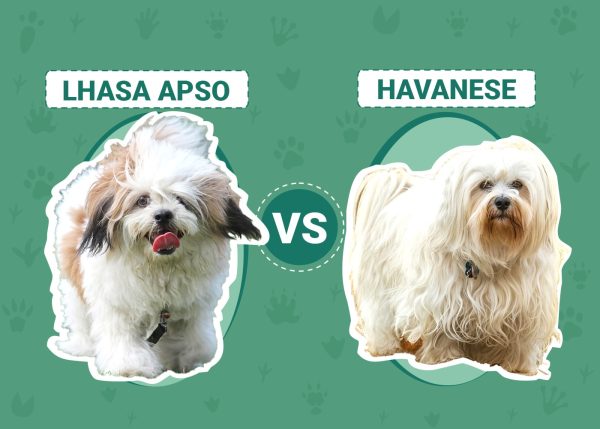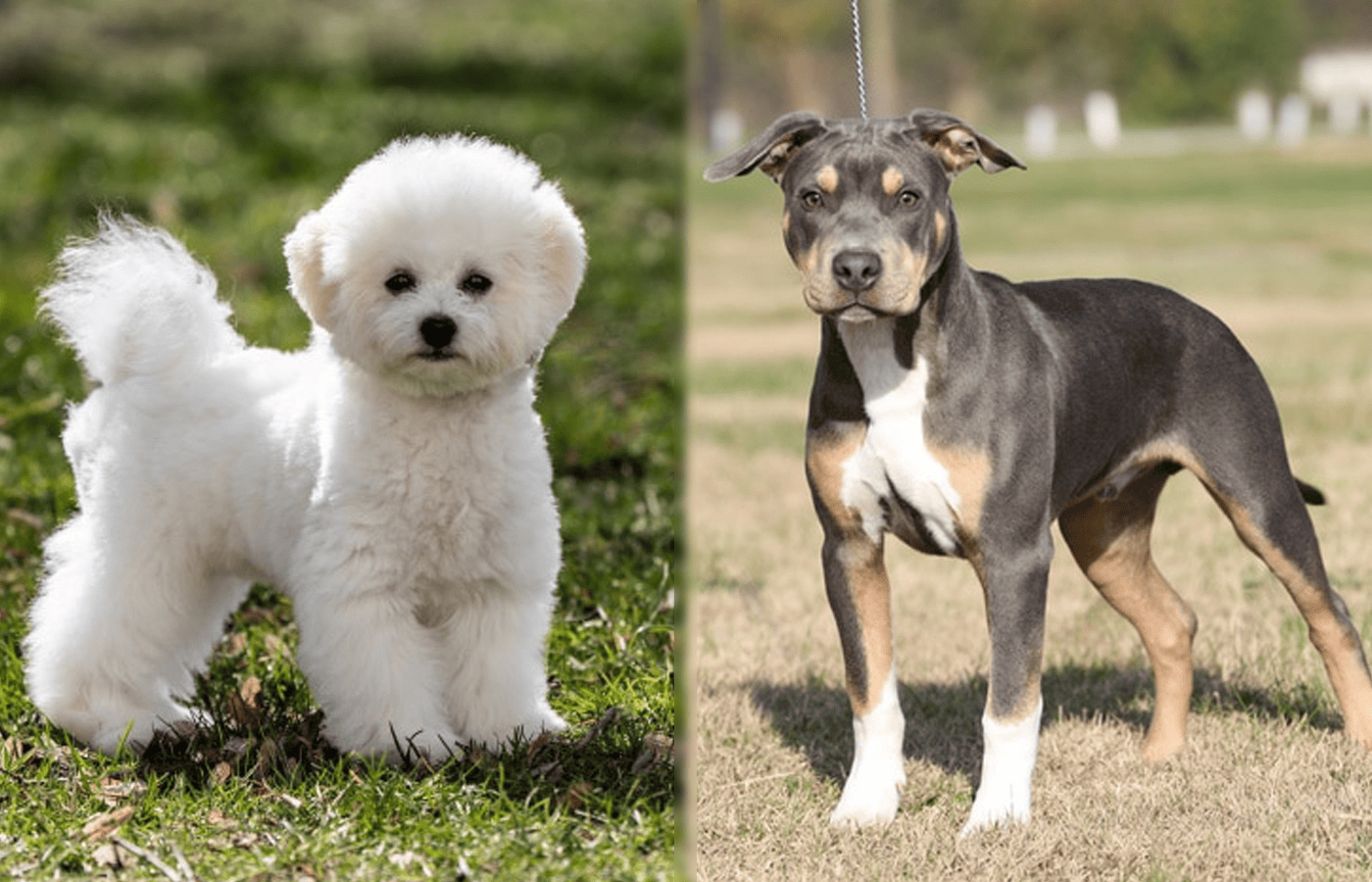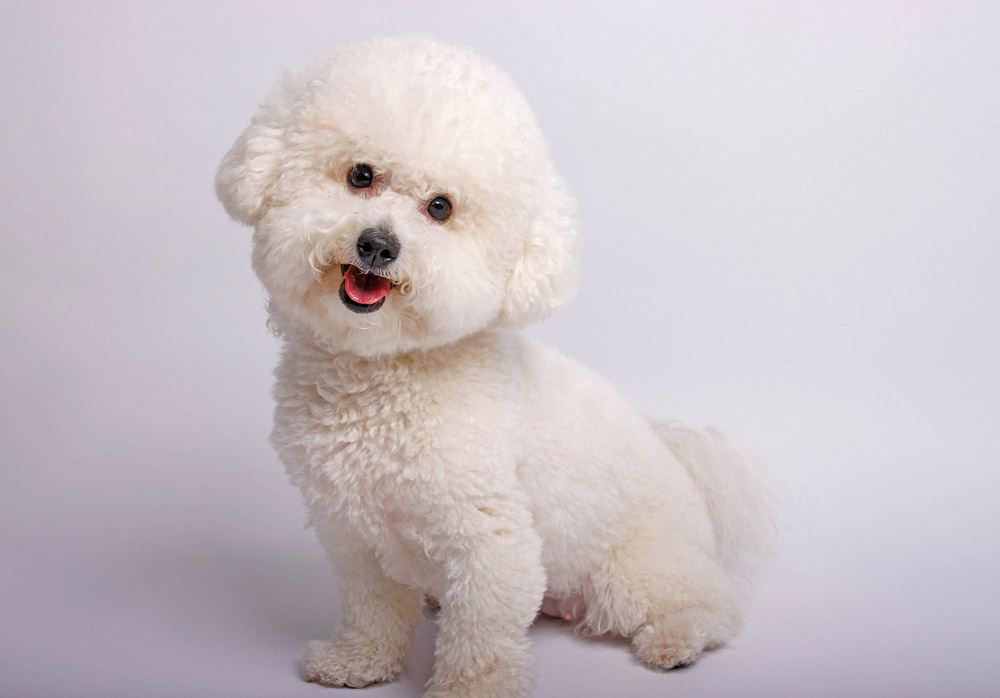Click to Skip Ahead
Do you want a small, loyal companion with a friendly disposition? If so, the Lhasa Apso and Havanese breeds may be what you’re looking for! These two distinct dog breeds have quite a bit of similarities, but also some major differences that could make one more suitable than the other for your family. Let’s learn more about each breed so that you can determine which is best for you.
Visual Differences
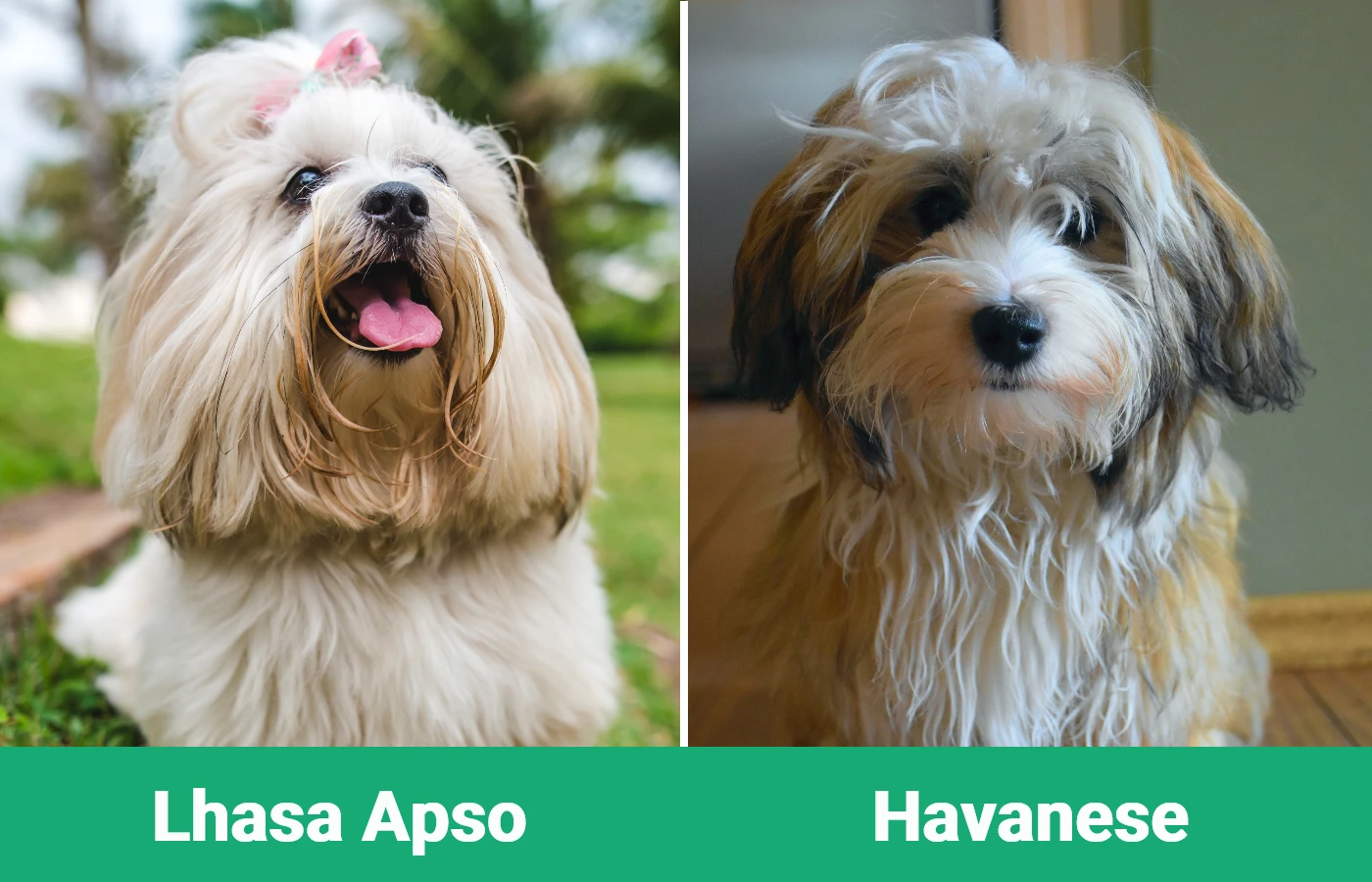
At a Glance
- Average height (adult): 10–11 inches
- Average weight (adult): 13–15 pounds
- Lifespan: 12–14 years
- Exercise: 1 hour per day
- Grooming needs: High
- Family-friendly: Yes
- Other pet-friendly: Yes
- Trainability: High
- Average height (adult): 8–11 inches
- Average weight (adult): 7–13 pounds
- Lifespan: 14–16 years
- Exercise needs: 30 minutes per day
- Grooming needs: High
- Family-friendly: Yes
- Other pet-friendly: Yes
- Trainability: High
Lhasa Apso Overview

The Lhasa Apso is a small but sturdy breed with an independent spirit. They have long, thick fur that requires frequent brushing and grooming, but is also hypoallergenic. They are protective of their families and make great watchdogs, but they can be defensive around new people and other animals. They require moderate exercise daily and thrive in a consistent routine that includes plenty of mental stimulation and socialization.
Personality / Characteristics
Lhasa Apsos are known for their brave, loyal and independent personalities. They can sometimes be stubborn and have a tendency to bark, but they are also affectionate and devoted to their family. They thrive on positive reinforcement and consistency in training, which will help establish a good bond between you and your pup.
Training and Exercise
Training a Lhasa Apso can be challenging, but with patience and consistency it is possible to have a well-trained pup. The key is to make training fun and keep sessions short, positive, and successful. With consistent positive reinforcement, the pup will learn quickly. Socialization should also start early for this breed, as they tend to be wary of new people and other animals.
They are an active breed that needs around 1 hour of exercise daily, but their exercise needs can be met with a daily walk or two as well as some interactive playtime. Mental stimulation is also important for this breed to keep them from getting bored and destructive.
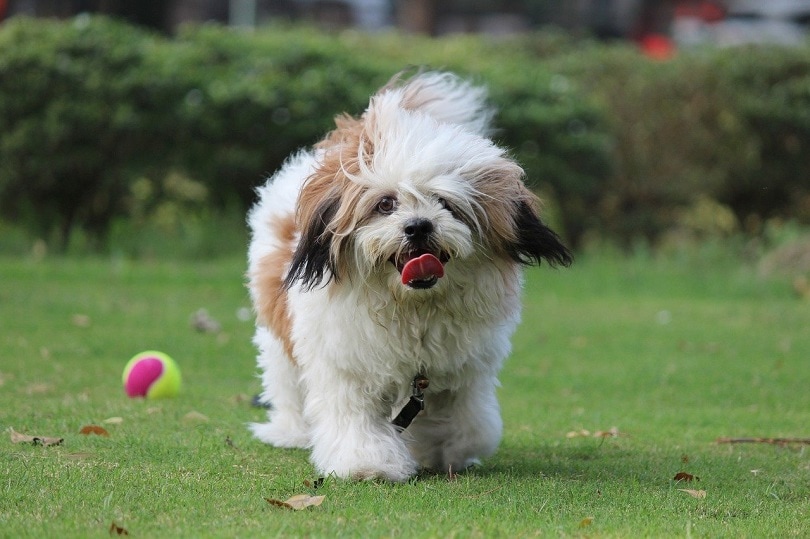
Health & Care
Lhasa Apsos are generally healthy, but like any breed, they can be prone to certain health issues. They require regular grooming and brushing of their long coats to prevent matting and tangling. It’s important to take your pup for annual checkups with the vet and keep up with immunizations. The breed is known to have a few genetic health issues, including patellar luxation, Legg-Calve-Perthes disease, and progressive retinal atrophy. Regular vet visits will help detect any potential problems early.
Breeding
Breeding a Lhasa Apso is best done by an experienced breeder, as this breed is prone to certain genetic health issues. It is important to ensure that all necessary screening tests are done prior to breeding. If you aren’t planning on breeding a Lhasa Apso, spaying or neutering is important for preventing unwanted pregnancy, reducing mating behaviors, and reducing or eliminating the risk of certain types of cancers.
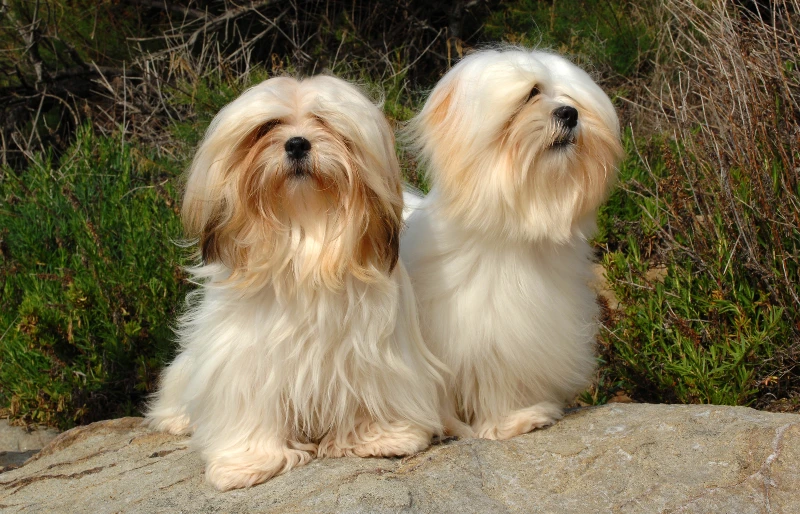
Suitable for:
Lhasa Apsos are perfect for families with children of all ages, as long as the kids know how to properly interact with pets. They also do well with other dogs and cats, provided they have been socialized early. Lhasa Apsos don’t need a lot of space and can do well in an apartment. This breed is best suited for an owner who is willing to commit time and patience to training, grooming, and providing exercise and mental stimulation. If you are looking for an outgoing, loyal, and loving pup, the Lhasa Apso is the perfect breed for you!
- Loving, loyal, and devoted
- Intelligent
- Trainable
- Can be stubborn
- Require daily grooming
Havanese Overview
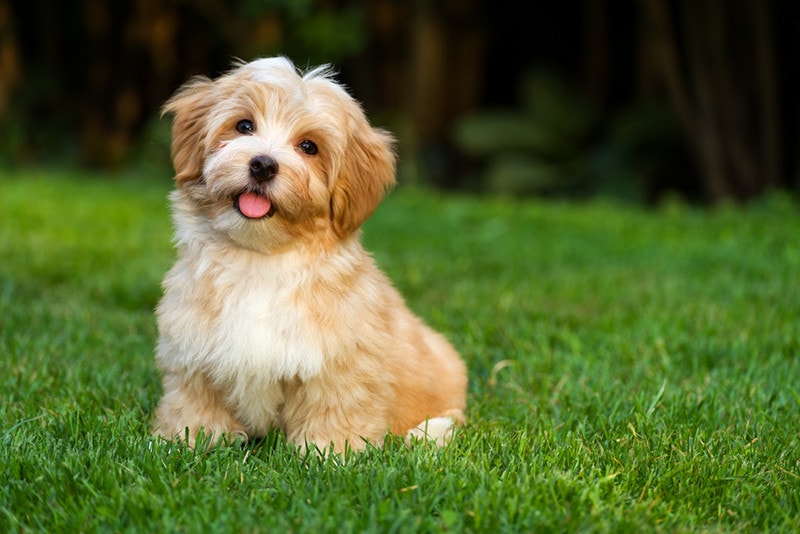
The Havanese, originating in Cuba, is a small but sturdy breed with an affectionate nature. They have long, silky coats that come in various colors, and minimal shedding makes them an ideal pet for those with allergies. Havanese are known to be intelligent and trainable if given consistent positive reinforcement. Their exercise needs can be met with a daily walk and interactive playtime, as well as mental stimulation to keep them mentally engaged.
Personality / Characteristics
Havanese have an outgoing, cheerful personality that makes them great family companions. They are known for their loyalty and devotion to their owners, and they love spending time with people. They are also intelligent and learn quickly but can be on the stubborn side at times. However, they are a very affectionate breed and are perfect for someone that wants a cuddly lap dog.
Training and Exercise
Havanese are smart and can be trained if given consistent positive reinforcement. They respond best with treats and praise, rather than punishment. Socialization is important for this breed as they tend to be wary of new people and other animals. It’s important to start socializing early and in a positive way.
Havanese also need less exercise than Lhasa Apsos. A Havanese only needs about 30 minutes of exercise a day. This can be in the form of a 30-minute walk or two 15-minute play sessions.
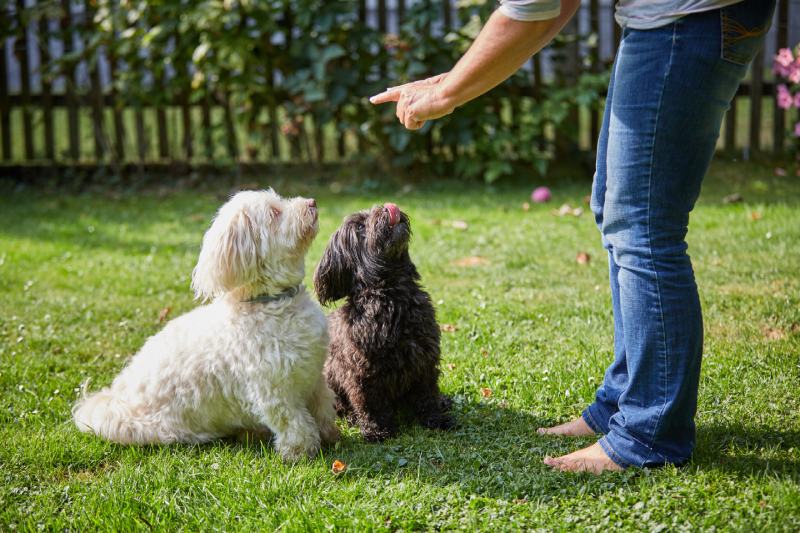
Health & Care
Havanese are generally healthy, but like any breed, they can be prone to certain health issues. They require regular grooming and brushing of their long coats to prevent matting and tangling. It’s also important to take your pup for annual checkups with the vet and keep up with immunizations. The breed is known to have a few genetic health issues, including eye diseases such as pannus and cataracts, canine hip dysplasia (CHD), luxating patella (dislocated kneecaps) and various skin conditions such as allergies. Again, regular vet visits will help detect any potential problems early.
Breeding
A practiced breeder is essential when considering breeding a Havanese, as this specific breed can be prone to certain hereditary health issues. It is critical that all necessary medical exams are completed before breeding takes place. Again, spaying and neutering is essential if you aren’t planning on breeding a Havanese to lower the risk of health problems, reduce or eliminate unwanted behaviors, and prevent puppies.
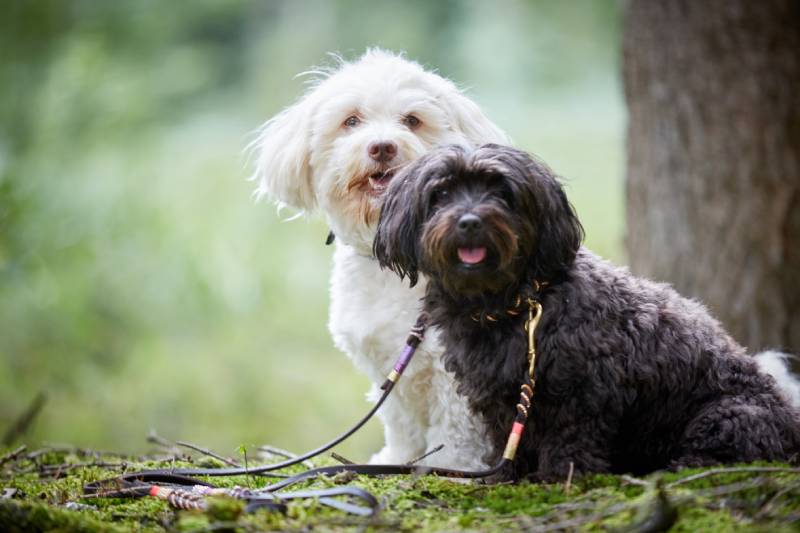
Suitable for:
Havanese are perfect for families with children of all ages, as long as the kids know how to properly interact with pets. They do well with other dogs and cats if they have been socialized early and are great apartment dogs. But although they have lower exercise needs, you’ll still need to commit time to grooming, caring for, and playing with a Havanese to keep them at their happiest and healthiest.
- Outgoing
- Affectionate
- Minimal shedding
- Needs less exercise
- Prone to more health conditions
Which Breed Is Right for You?
Both the Lhasa Apso and Havanese are suitable for apartment life due to their small size. Both breeds are fairly active, so if you’re looking for an energetic pup that can still thrive in a small space, then either breed might be the ideal breed for you, although the Lhasa Apso needs a bit more exercise.
For first time owners, the Havanese is an ideal choice. They are known for their loyalty and devotion to their owners and they learn quickly with positive reinforcement. They are also relatively easy to groom and care for, making them an excellent companion for someone just starting out with pet ownership.
Both the Lhasa Apso and Havanese are suitable for a loud, busy household. However, the Havanese is known to be more outgoing and affectionate than the Lhasa Apso, making it better suited for households with kids or other animals.
The Lhasa Apso is better suited for people who have to be gone a lot. They are known to be quite independent and can handle being home alone for extended periods of time without getting separation anxiety. The Havanese does better with companionship and may not be best for those who are away from home often.
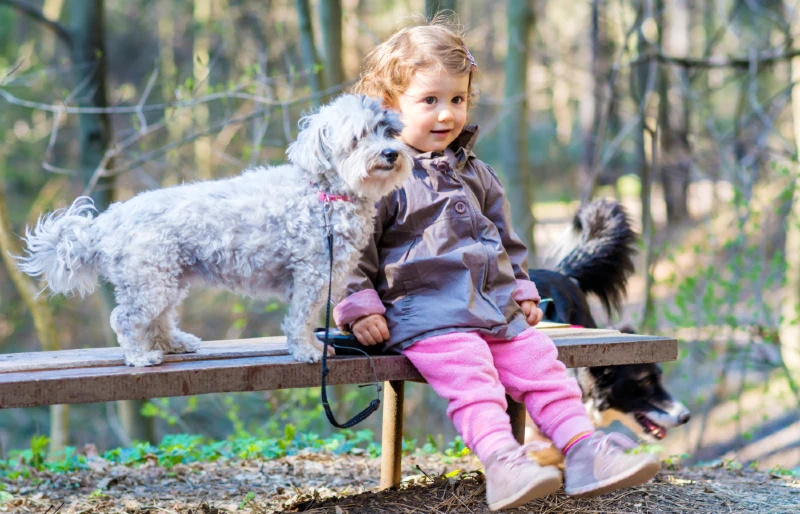
Frequent Asked Questions
Which Breed Is Better for Allergy-Sufferers?
The Havanese is a great breed for allergy-suffers due to their minimal shedding, and they are often considered to be hypoallergenic. While the Lhasa Apso does not shed as much as other breeds, they still require regular grooming to maintain their long coats. Therefore, the Havanese is the better option for those prone to allergies.
A Note About “Hypoallergenic” Dogs
It’s important to note that there is no such thing as a completely hypoallergenic dog. All breeds have the potential to trigger allergies in people, so it’s always best to visit with a breed before making any commitments. Additionally, regular grooming and maintenance are still necessary for all dogs, even if they are considered “hypoallergenic”.
What If I Still Can’t Decide?
If you still aren’t sure which breed is right for you, it’s best to talk to a veterinarian, animal behaviorist, or reputable breeder for each breed that is familiar with the breed and their behaviors. They can help you decide which breed would be the best fit based on your situation and lifestyle. It is also important to research both breeds in depth before making any final decisions so that you are sure of what you’re getting into. Finally, if possible, spend time with each breed to get a better sense of their personalities and temperaments.
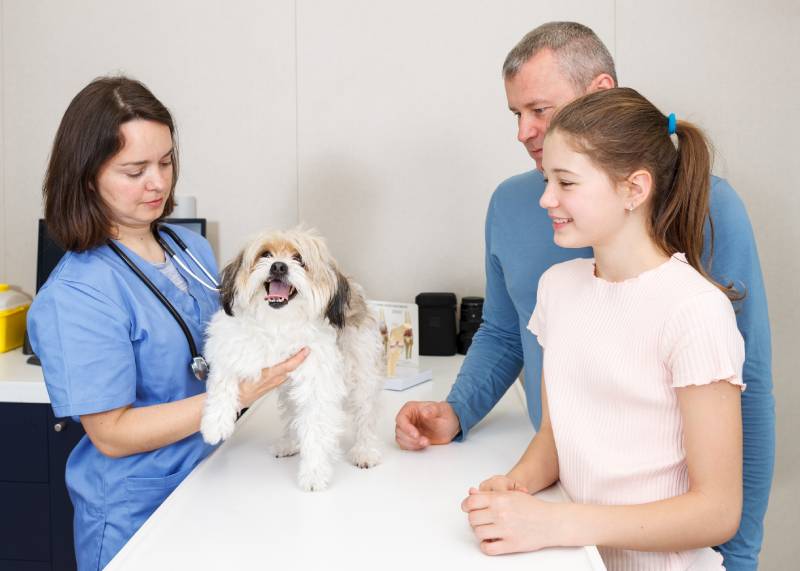
How can I decide, Adopt or Shop for a Puppy?
When deciding between adopting and buying a puppy, it is important to consider the pros and cons of each option. Adopting an adult dog from a rescue organization can be a great way to give an animal a second chance at life while also saving money on vet bills. However, buying puppies from responsible breeders can help ensure that your pet is healthy and free of genetic diseases. It is important to research any breeder you are considering and make sure they are reputable before making a purchase.
Conclusion
Overall, Lhasa Apsos and Havanese are both wonderful breeds with unique personalities. While they both require similar care and attention, each breed has their own set of characteristics that make them a great pet for any family or individual. Ultimately, it is up to the potential owner to decide which personality and traits best suit their lifestyle and needs.
Related Read:
Featured Image Credit: Top – Lhasa Apso (kshitijprakash, Pixabay) | Bottom – Havanese (Dennis Bautista, Pexels)


